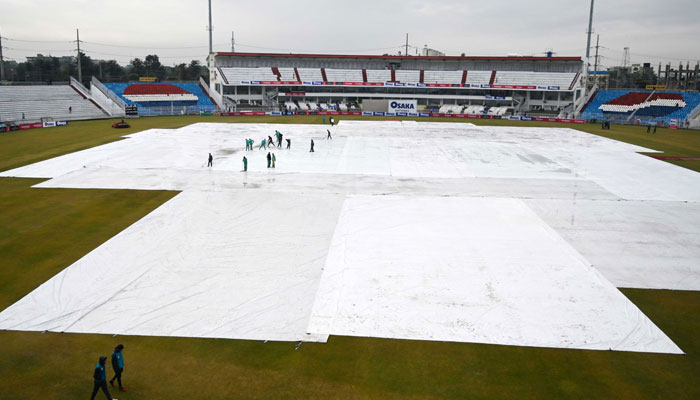Can rain hamper Pakistan, New Zealand T20I series?
Five-match series at risk of being affected due to rain forecast in Rawalpindi which will host three matches
April 15, 2024

RAWALPINDI/ISLAMABAD: In a worrying development for cricket fans, who are all geared up for the upcoming series between Pakistan and New Zealand, the T20I matches are at risk of being affected owing to the heavy rainfall forecast in Rawalpindi where the matches are scheduled.
With the five-match series set to commence on April 18 in Rawalpindi, the city is expected to witness thunderstorms and rainfall tomorrow, with the downpour expected to continue throughout the week.
A day earlier Michael Bracewell-led Black Caps's squad reached Islamabad in the early hours of Sunday morning ahead of the series against Green Shirts.
The Pakistan team's practice session scheduled for Tuesday (tomorrow) is likely to be cancelled. Also, there is a forecast of rain in Rawalpindi where three of the five matches are scheduled for April 18, 20 and 21 — the rest of the two matches will be played in Lahore on April 25 and 27.
The development comes as Punjab, Balochistan, Khyber Pakhtunkhwa and Sindh have witnessed moderate to heavy rainfall in recent days.
Rains, thunderstorms, and dusty winds have affected almost the entire Balochistan and some parts of Punjab. Quetta also received heavy rainfall, breaking the spell of blistering weather and turning the weather pleasant.
Pakistan Meteorological Department (PMD) has predicted "rain-windstorm/thunderstorm with an isolated hailstorm" in various areas across Pakistan including KP, Gilgit-Baltistan, Kashmir, Islamabad, Punjab, Balochistan and upper/southwest Sindh on April 18.
Meanwhile, on April 20, the Met Office forecasted rain in KP, the federal capital, Punjab, northeast Balochistan, Kashmir and Gilgit-Baltistan.











